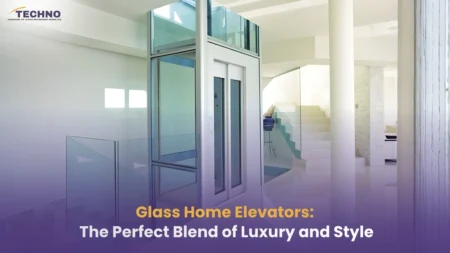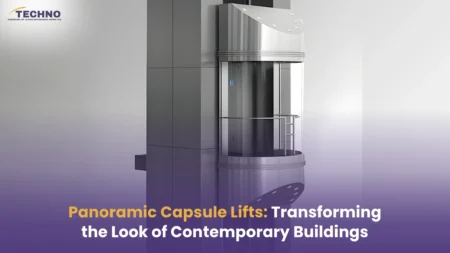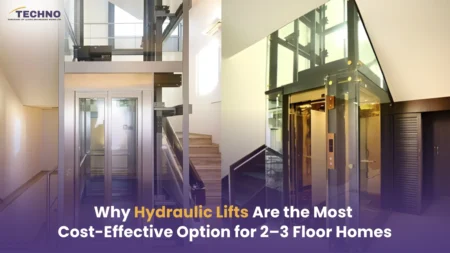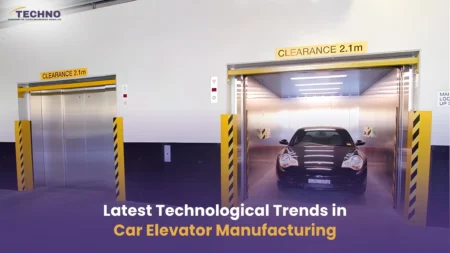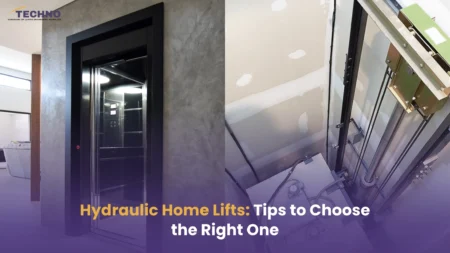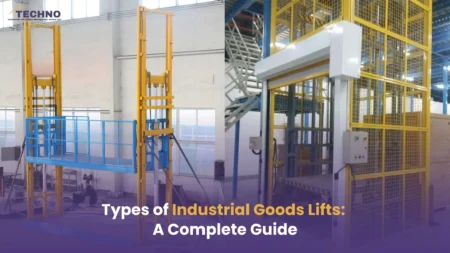Do you know that the right home elevator can make a remarkable difference? Not all the elevators are the best voice for you. You have to pay meticulous attention to choose the best elevator for you. This article will talk about the considerations that you need to watch while choosing the lift for home or your building.
Understanding Building Needs
Can you go straight to the manufacturer’s showroom & pick the aesthetically pleasing elevator for your building? No. While choosing an elevator there are many things to consider.
Understanding the core purpose of an elevator is more than essential when choosing it for a building, —whether residential, commercial, or industrial. Not every building will have the same requirements, each building type demands different capabilities.
Here is an example:
Residential elevator lift usually have fewer floors and need moderate capacity. On the other hand, commercial elevators must be able to handle heavier traffic and varied peak times.
When selecting an elevator there is another crucial factor to consider: The size of the building.
In a high-rise building, faster elevators are vital to cut down wait times. On the flip side, smaller buildings can function with slower models. Furthermore, traffic flow considerations also play a vital role—like peak usage times in commercial spaces. This can influence the need for multiple elevators or advanced dispatch systems. Accessibility is another critical factor, as modern elevators must comply with regulations like the Americans with Disabilities Act. This ensures they cater to all users.
Take skyscrapers like the Burj Khalifa as an example. These buildings use high-speed elevators to meet the building’s height and traffic demands. Align the choice of your elevator with the building’s specific requirements. By this approach, you can ensure safety and long-term operational efficiency.
Elevator types
There are various types of elevators. You have to choose the one that suits the best for your building. Here are a few types of elevators that you should consider:
1. Hydraulic Lift
Hydraulic Elevators are the best elevators for low-rise buildings (usually up to five floors). A hydraulic lift for home is the best choice as it is more cost-effective. These types of elevators function slower and use more energy.
2. Traction Elevators
Traction Elevators are the best elevators for mid to high-rise buildings. Such elevators might come with a huge capital fund. It functions faster and is more energy efficient.
3.Machine-room-less Elevators
These are gaining traction lately. This is because of their space-saving design and energy efficiency. If you want a less energy-consuming elevator, this is your go-to one.
4.Pneumatic Elevators: The House Elevator Lift
These elevators are mostly used in houses and commercial buildings (small). Such elevators come with a distinct design and need minimal space and construction.
Safety Features in Modern Elevators
Safety takes the front seat when it comes to selecting the ideal elevator. Modern elevators are equipped with advanced fire safety mechanisms. This includes fire-rated doors and emergency recall systems that send the elevator to a designated safe floor in case of a fire. Emergency power systems make sure that elevators can function during power outages, preventing users from being stranded. Additionally, modern control systems provide real-time monitoring. This sets the stage for swift responses to any irregularities.
In terms of compliance, elevators must adhere to stringent building codes, like the International Building Code, and accessibility standards like the Americans with Disabilities Act. These regulations promise that elevators are accessible to all, including individuals with disabilities.
Here is an example;
ADA-compliant elevators have larger cabins, lower control panels, and visual as well as auditory cues for ease of use.
Maintenance and Longevity
What keeps the elevator top quality? It is the Ongoing maintenance. For both the safety and longevity of the elevator, ongoing maintenance has to be followed properly.
Elevator systems must undergo regular inspections, oil changes, and safety checks. This is to ensure the optimal performance of the elevator. Here is the catch: Ignoring maintenance can face costs down the line, along with potential safety hazards.
Several factors influence the lifespan of an elevator. This includes the frequency of use, building conditions, and the quality of components. Usually, elevators last between 20 to 30 years. But with proper upkeep, some can last for a longer time.
Choosing a Reliable Elevator Manufacturer
The choice of manufacturer can greatly affect the overall performance, durability, and safety of an elevator. One example of a successful installation is the elevators in the Shanghai Tower, which are among the fastest in the world. Otis, the manufacturer, ensured not only high-speed capabilities but also implemented state-of-the-art safety and energy-efficient systems, demonstrating the importance of choosing a trusted manufacturer.
The Ending Note
Safety features, regular maintenance, and selecting a reputable manufacturer are key to ensuring the long-term functionality and safety of elevators. The right elevator for you depends on your needs and requirements. However, choosing the right manufacturer makes significant changes in the end.



